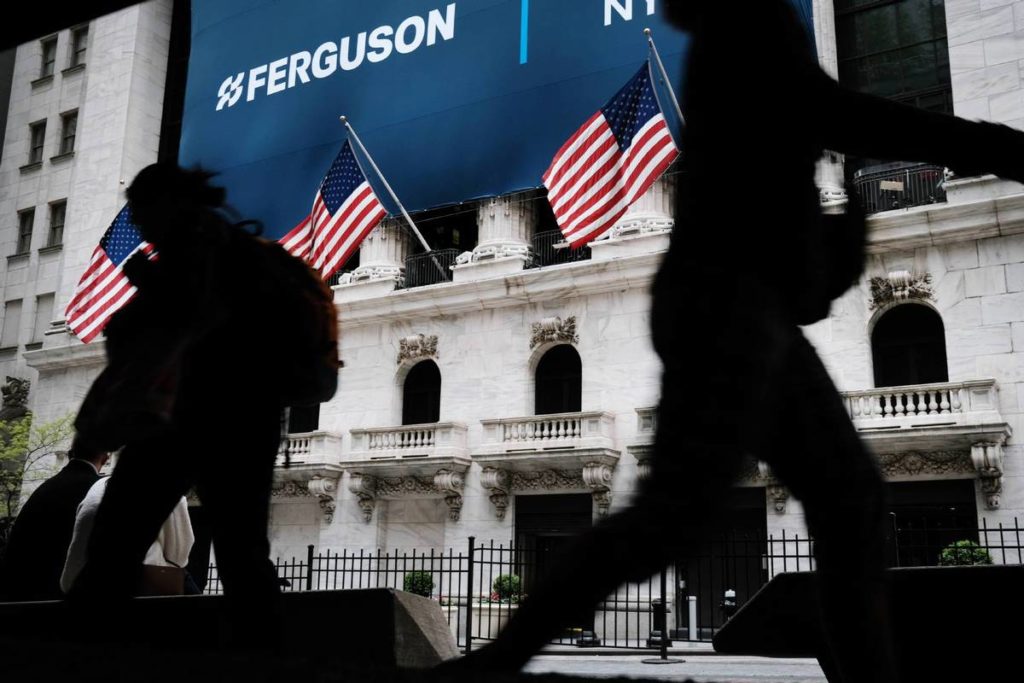Stretched US consumers fed competing views on causes of economic scourge
While most people in the United States are quick to complain about inflation, they will struggle to get clear answers from political leaders and policymakers on the cause of the economic scourge. And what answers they do get are often colored by politics.
Officials in the administration of US President Joe Biden have suggested that forces beyond their control are driving inflation, though many aren’t satisfied with that account.
“The reality is, the cause of this inflation is the supply chain problems that were caused by COVID we’re still struggling with,” Commerce Secretary Gina Raimondo told the CNN network on Sunday. The Ukraine crisis is “driving the price of food and gas up … We know Americans are struggling and demand changes,” she said.
Eighty percent of people in the US say inflation is an important factor in how they will vote in November’s congressional midterm elections, while 74 percent say gasoline prices, which are nearing $5 a gallon, are key, according to an ABC News/Ipsos poll released on Sunday. The same poll found that less than 30 percent approve of Biden’s handling of inflation (28 percent) and gas prices (27 percent).

More than 8 in 10 respondents believe the economy is poor or not so good, according to a new Wall Street Journal-NORC poll. The poll found that 1 percent of them described the economy as excellent, while 27 percent rated it as poor, and 55 percent not so good.
The nation’s average gasoline price has risen for the seventh straight week, popping 26 cents from a week ago to $4.85 a gallon on Monday, according to data from the GasBuddy website.
The US average is up 56 cents from a month ago and $1.81 per gallon higher than a year ago. The price of diesel increased 11.5 cents last week, to $5.62 a gallon.
“After a blistering week of gas prices jumping in nearly every town, city, state and area possible, more bad news is on the horizon,” said Patrick De Haan, head of petroleum analysis at GasBuddy. “It now appears not if, but when, we’ll hit that psychologically critical $5 national average.”
On Sunday, Transportation Secretary Pete Buttigieg told ABC News’ This Week program: “But we also know that the price of gasoline is not set by a dial in the Oval Office. And when an oil company is deciding, hour by hour, how much to charge you for a gallon of gas, they’re not calling the administration to ask what they should do; they’re doing it based on their goal of maximizing their profits.”
Biden also is starting to face criticism from usually supportive media. In an article on the left-leaning Daily Beast news website on Monday, Matt Lewis said: “Sure, all presidents are dealt a hand they must play, but effective presidents drive the agenda or (when things go wrong) course correct.
“Biden’s downward spiral began with that disastrous Afghanistan withdrawal (a choice he made). Subsequent problems, such as inflation, are a combination of factors (like supply chain problems) that are out of his control and policies (like spending) that are the product of a fundamental misreading of his mandate.”
Notion rejected
Raimondo rejected the notion that Biden’s American Rescue Plan that passed last year swamped the economy with cash and led to higher prices.
“I shudder to think… what we’d be living through right now if we didn’t have the American Rescue Plan. Remember, that was the money for vaccinations, which actually allowed us to get everybody back to work. That was the money for emergency rental relief,” she said.
One possible outlet for reducing inflation is to lift tariffs imposed on China during the presidency of Donald Trump.
Raimondo said on Sunday that the Biden administration is considering removing some of the tariffs to inhibit inflation.
“The president has asked us on his team to analyze that. And so we’re in the process of doing that for him, and he will have to make that decision,” she said. “I will say it depends on what we’re talking about and what kinds of products.”
Raimondo mentioned items such as “household goods, bicycles, et cetera, and it may make sense. And I know the president is looking at that”.
Treasury Secretary Janet Yellen recently said that the administration misread inflation, believing it was “transitory”.
“There have been unanticipated and large shocks to the economy that have boosted the energy and food prices, and supply bottlenecks that have affected our economy badly that I didn’t, at the time, fully understand,” Yellen said on May 31.
The Federal Reserve has been gradually raising interest rates from near zero to fight inflation.
The Consumer Price Index rose 8.3 percent in April, according to the Bureau of Labor Statistics. The report for May is due on Friday.


